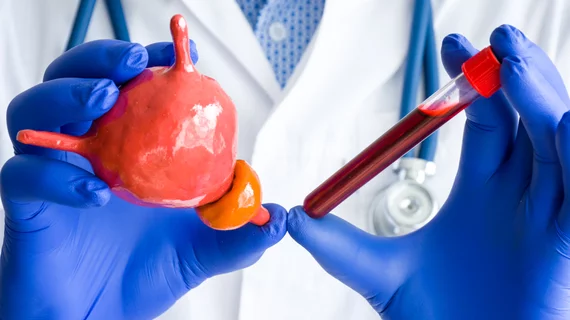Total-body PET scanner detects cancer in 60 seconds
One of the only total-body PET scanners in the United States arrived at its new home in Grand Rapids, Michigan, this week.
The machine, which can image patients from head to toe in one pass, is located at Michigan State University, the university announced May 9. Unlike conventional PET scans that take anywhere from 20 to 45 minutes to complete, the new MSU scanner can conduct total body scans in as little as 60 seconds.
Imaging is completed quickly, and providers gain the ability to begin treating a patient’s cancer on the same day, likely within hours of their diagnosis, doctors with Bold Advanced Medical Future (BAMF) Health told news crews at an unveiling of the scanner. This is because of the scanner’s placement in the same building as the university’s radiopharmacy.
"It's a very precise, targeted, specific type of cancer treatment, as opposed to some of the more general cancer care that we're used to," Dr. Brandon Mancini, medical director for BAMF Health, shared with news crews. "We're going to be able to produce radiotracers that have not been able to be used clinically, and again, impact more people more quickly."
The new technology comes as a result of a generous $19.5 million grant that Doug Meijer gave to Michigan State University. Meijer’s own stage 4 prostate cancer diagnosis served as the inspiration behind the project, as he has personal experience undergoing exams using scanner in Germany.
The new equipment, which initially will reserved for patients with prostate and neuroendocrine tumors, is expected to be operational in July. BAMF Health is said to be working with insurers to obtain coverage for the imaging and treatments.
Related PET imaging news:
Combination therapy that includes new radionuclide proves effective for metastatic prostate cancer
New radiotracer that detects prostate cancer recurrence produces 'stunning' results
'Pandemic brain': PET/MRI images reveal how COVID's impact is felt by non-infected individuals

